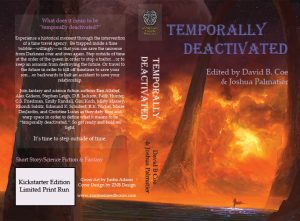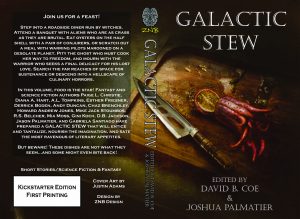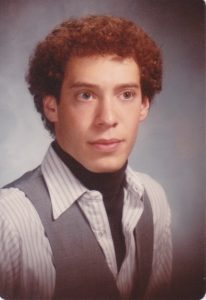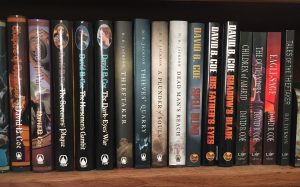This past week, I spent a good deal of time going through old magazines and books in my office trying to clear out some of the clutter. (More on that in Wednesday’s post.)
For years, I have subscribed to a nature photography magazine. Yes, it’s an actual paper magazine — I get an issue every month, and invariably each includes beautiful, glossy photographs — landscapes, portraits of wildlife, macro shots of plants or creatures — articles about different ways I might improve my craft (if only I had all the time in the world to devote to my cameras and lenses), and lots of advertisements for lots of equipment I can’t afford and don’t need. I look forward to every issue.
But one issue published a year or so ago had an article from a photographer who was trying to give advice to aspiring and amateur photographers about how they/we should deal with the pandemic. Since travel was hard just then, he said, we should concentrate on local sites, places we probably overlook on a day-to-day basis, but which might be beautiful in their own right, and thus might be worthy subjects for our next photographic outings. Great advice.
Except his example, based on where he lived, was Capitol Reef National Park, in Utah’s magnificent red rock country. THAT’S where he was going to take photos as a consolation for not being able to travel due to Covid restrictions. That’s a little like telling someone that since they can’t eat out in restaurants, they should settle for a home-cooked meal, like you do. And then revealing that your partner is a 3-star Michelin chef . . .
I somehow missed this article when the issue first appeared, and so got a good laugh out of it the other day.
But then I started thinking that for many people reading the advice I offer to budding writers, I might come off as equally out of touch.
Let me be clear. I don’t think ill of this writer, and I’m not sitting here thinking all the readers of my blog posts think ill of me. But I do think that for those of us who have achieved some success in a given field, it is often too easy to dispense advice, no matter how well-meaning, no matter how grounded in lived experience. I can suggest that writers experiment with this approach, or rethink that old habit, but the fact is sometimes the advice I give demands a commitment of time, or a certain amount of creative risk. And those sorts of practices are much easier for me to try than they might be for someone who doesn’t have a publishing history or a current contract for a book or trilogy.
Put another way, on some level I can’t help but write from a place of privilege and good fortune, and that may, at times, make me blind to the subtext of my advice and recommendations. So consider this a blanket apology for every time in the past I have given writing advice that I think sounds easy and basic, but that comes across as lacking in understanding or empathy for the experiences of writers at other levels. And consider it as well an apology for every time in the future when I do this again. Because I’m sure I will.
Don’t think for a moment I don’t know just how lucky I am to do what I do. And if in my eagerness to share advice or experience with you, I come across as clueless . . . well, as Nancy and the girls will tell you, it’s because sometimes I AM pretty clueless. But I love what I do. Twenty-five years-plus into this career, I still can’t quite believe I get to make up stories for a living. And I want that for others who have the same dreams I did when I typed “Chapter One” for the very first time.
I should also say that most of the advice I give in my writing posts is stuff I needed to hear in the early years of my career. I highlight mistakes I either used to make or still struggle with to this day. Sometimes I tell you to do things I am currently trying to make myself do. The wonderful thing about writing is that we can always improve. And the frustrating thing about writing is that we always need desperately to improve. We can start writing as young children and continue well into our dotage and still not learn all we need to about this magical craft.
And so I hope you will consider that when I offer advice and lessons on writing, I am there learning and striving right alongside you. Because I am certain I have yet to master beyond the capacity for further improvement any skill or practice about which I’ve written. We are, all of us, students of the written word, and we are still matriculating. How glorious is that?
Have a great week.









 When I am not in these panels, I will be at my table in Author’s Alley, signing and selling books. I also plan to have with me some of
When I am not in these panels, I will be at my table in Author’s Alley, signing and selling books. I also plan to have with me some of  Since writing it, though, I have become sort of fixated on the idea. I am editing my fourth anthology, and already looking at the possibility of editing another. My freelance editing business is attracting a steady stream of clients — I’m booked through the spring and have had inquiries for slots later in the year.
Since writing it, though, I have become sort of fixated on the idea. I am editing my fourth anthology, and already looking at the possibility of editing another. My freelance editing business is attracting a steady stream of clients — I’m booked through the spring and have had inquiries for slots later in the year. I am not an acquiring editor. I do decide, along with my co-editor, whose stories will be in the anthologies I edit, so I suppose in that way I am determining the fate of submissions and, in a sense, “buying” manuscripts. But, for now at least, I don’t make decisions about the fate of novels, and so I don’t have to go toe-to-toe with agents. Good thing. They scare me. (Looking at you, Lucienne Diver.)
I am not an acquiring editor. I do decide, along with my co-editor, whose stories will be in the anthologies I edit, so I suppose in that way I am determining the fate of submissions and, in a sense, “buying” manuscripts. But, for now at least, I don’t make decisions about the fate of novels, and so I don’t have to go toe-to-toe with agents. Good thing. They scare me. (Looking at you, Lucienne Diver.) I did just that. I started with some short stories that have never since seen the light of day, but which helped me to shape the contours of my world and its history. Then I began work on the novel, and by September had completed the first five chapters of what would eventually be Children of Amarid, my first published novel. I gave the manuscript to a friend of the family who had been a publisher, and he agreed to act as my agent, operating under standard agenting fees. He sent those five chapters and an outline of the rest of the book to various fantasy publishers.
I did just that. I started with some short stories that have never since seen the light of day, but which helped me to shape the contours of my world and its history. Then I began work on the novel, and by September had completed the first five chapters of what would eventually be Children of Amarid, my first published novel. I gave the manuscript to a friend of the family who had been a publisher, and he agreed to act as my agent, operating under standard agenting fees. He sent those five chapters and an outline of the rest of the book to various fantasy publishers.
 As you might expect, I did a great deal of prep work for my various classes — I wouldn’t dream of entering settings like those if I weren’t armed to the teeth with talking points, notes, topics for discussion, etc. For one thing, I have a responsibility to my students, and I take is seriously. And, though I don’t think most people would know it to look at me and listen to me, I suffer from profound stage fright. That preparation is my armor, my spell of warding. If I prepare well, my thinking goes, I’m less likely to make a complete fool of myself. This doesn’t always work — I’m perfectly capable of looking and sounding like an idiot even when I’ve done my homework. Still, I think my strategy is sound, at least in theory…
As you might expect, I did a great deal of prep work for my various classes — I wouldn’t dream of entering settings like those if I weren’t armed to the teeth with talking points, notes, topics for discussion, etc. For one thing, I have a responsibility to my students, and I take is seriously. And, though I don’t think most people would know it to look at me and listen to me, I suffer from profound stage fright. That preparation is my armor, my spell of warding. If I prepare well, my thinking goes, I’m less likely to make a complete fool of myself. This doesn’t always work — I’m perfectly capable of looking and sounding like an idiot even when I’ve done my homework. Still, I think my strategy is sound, at least in theory…